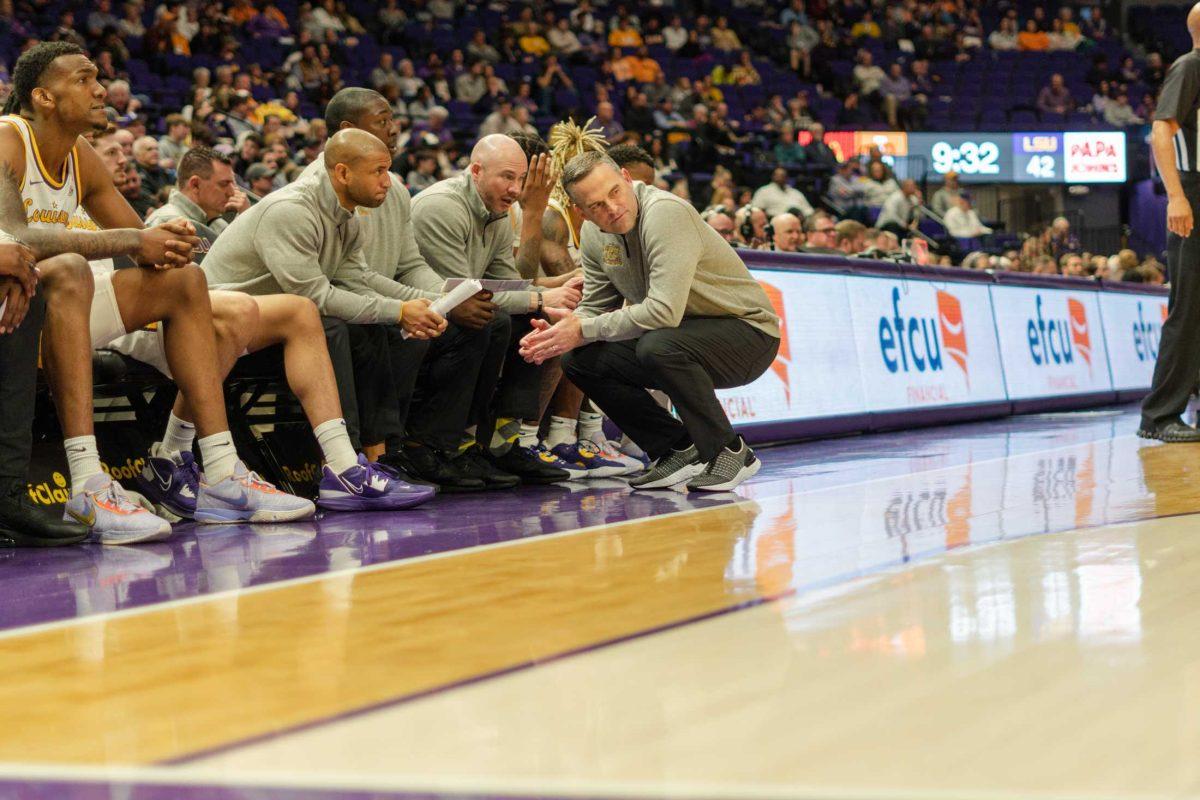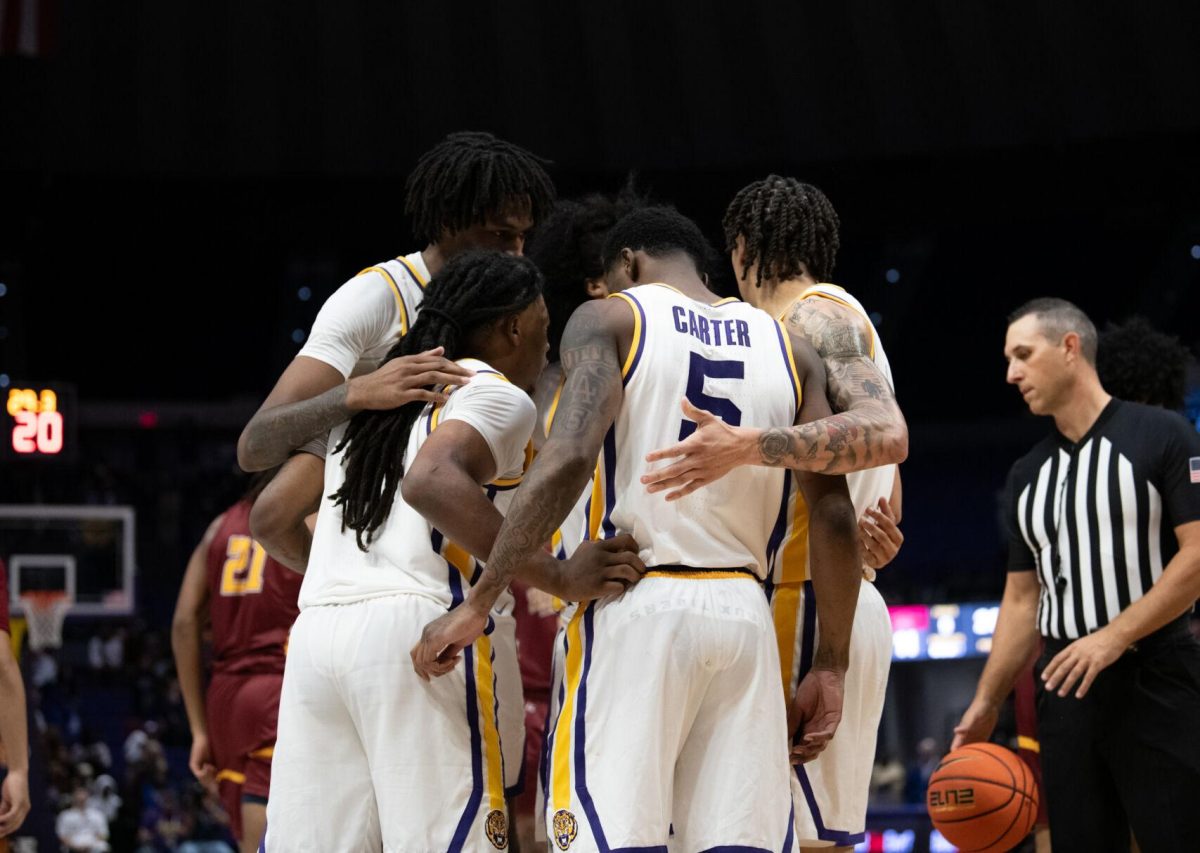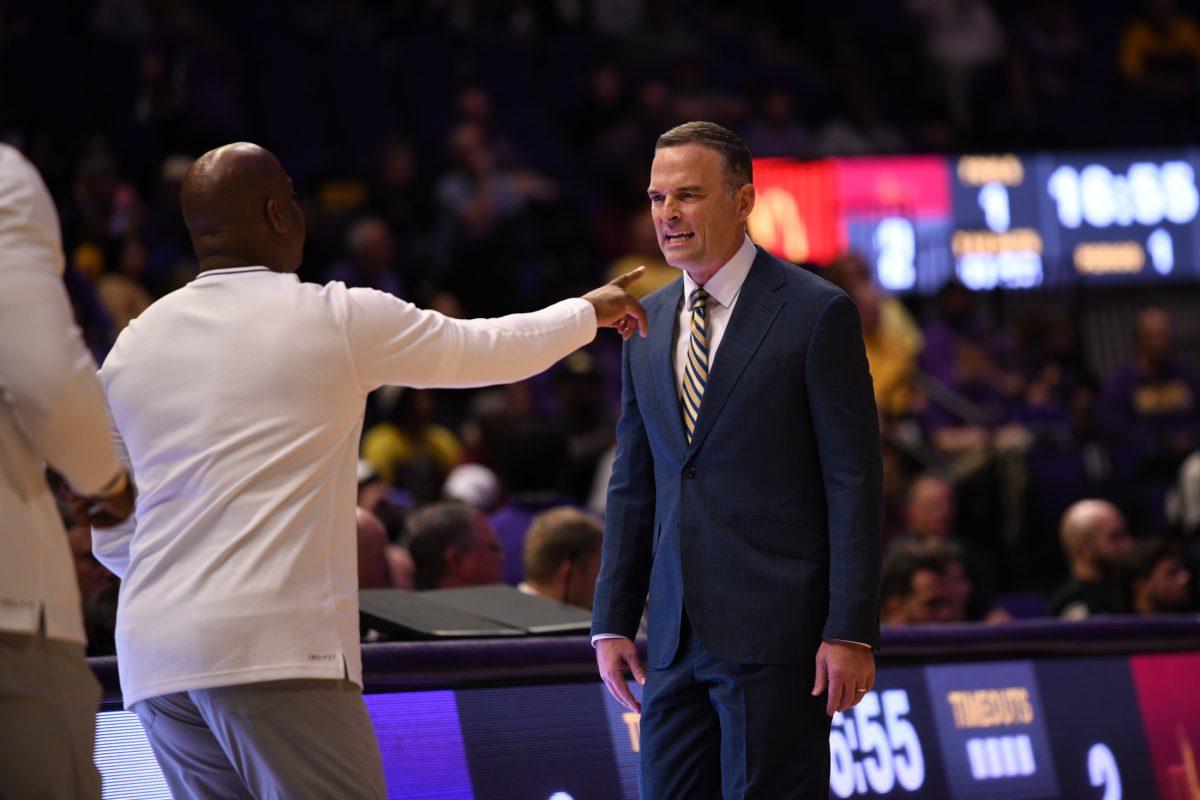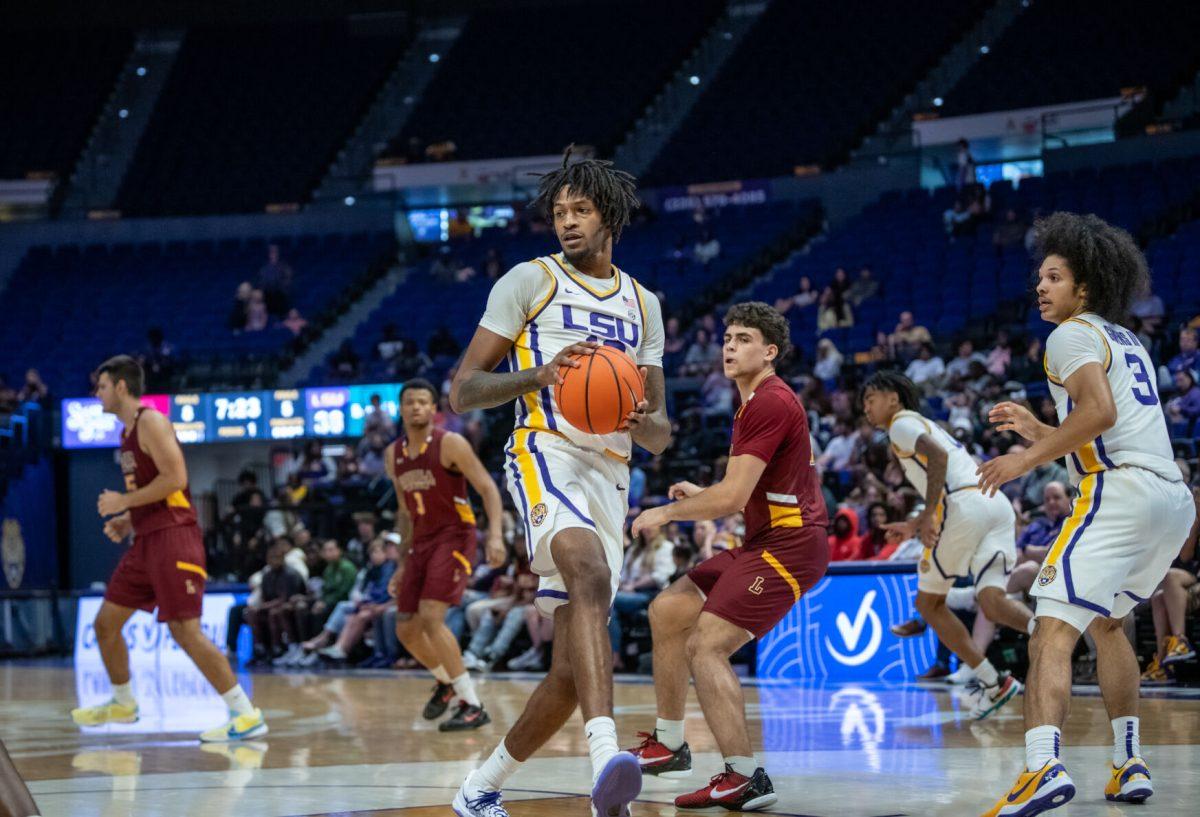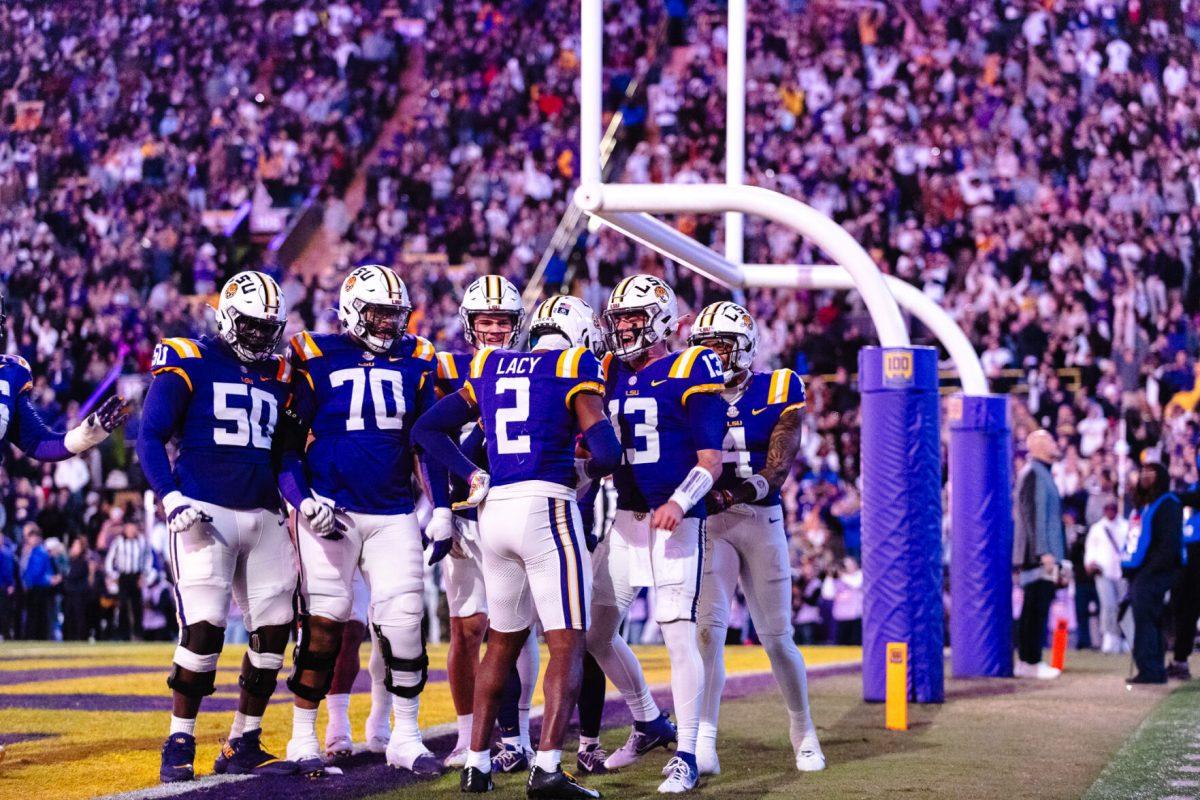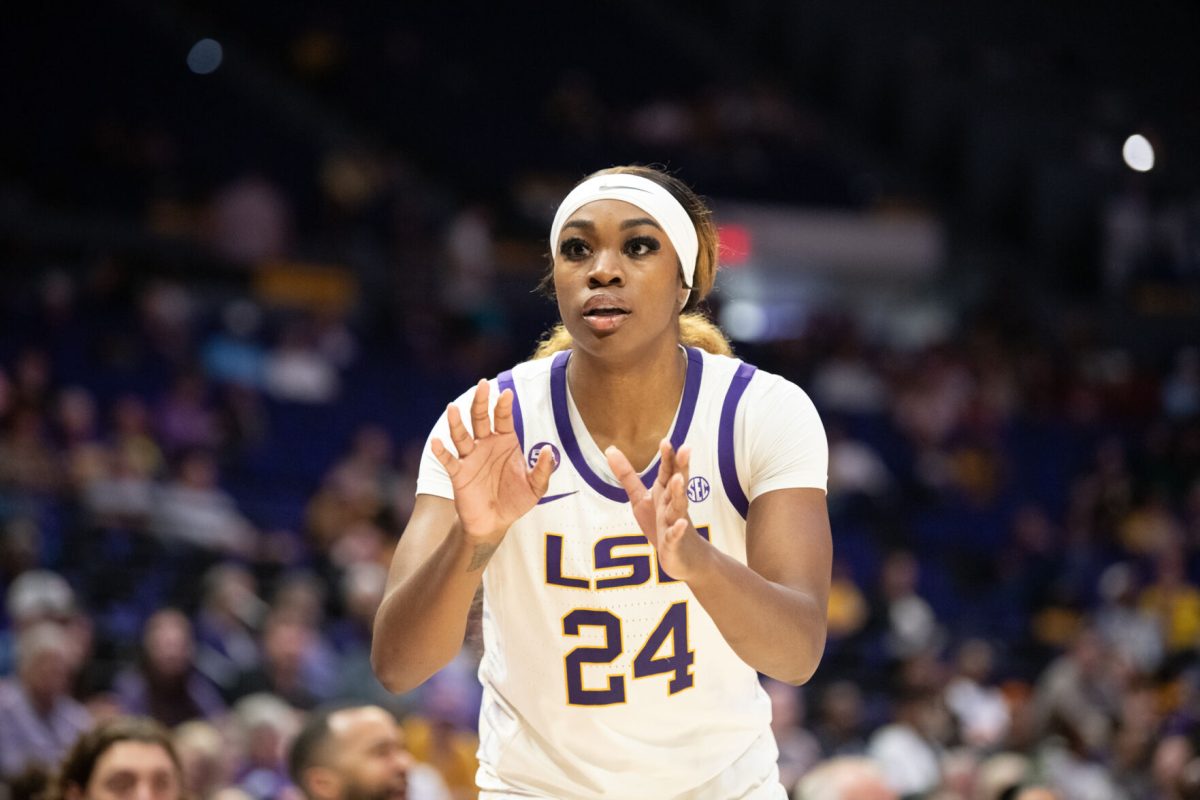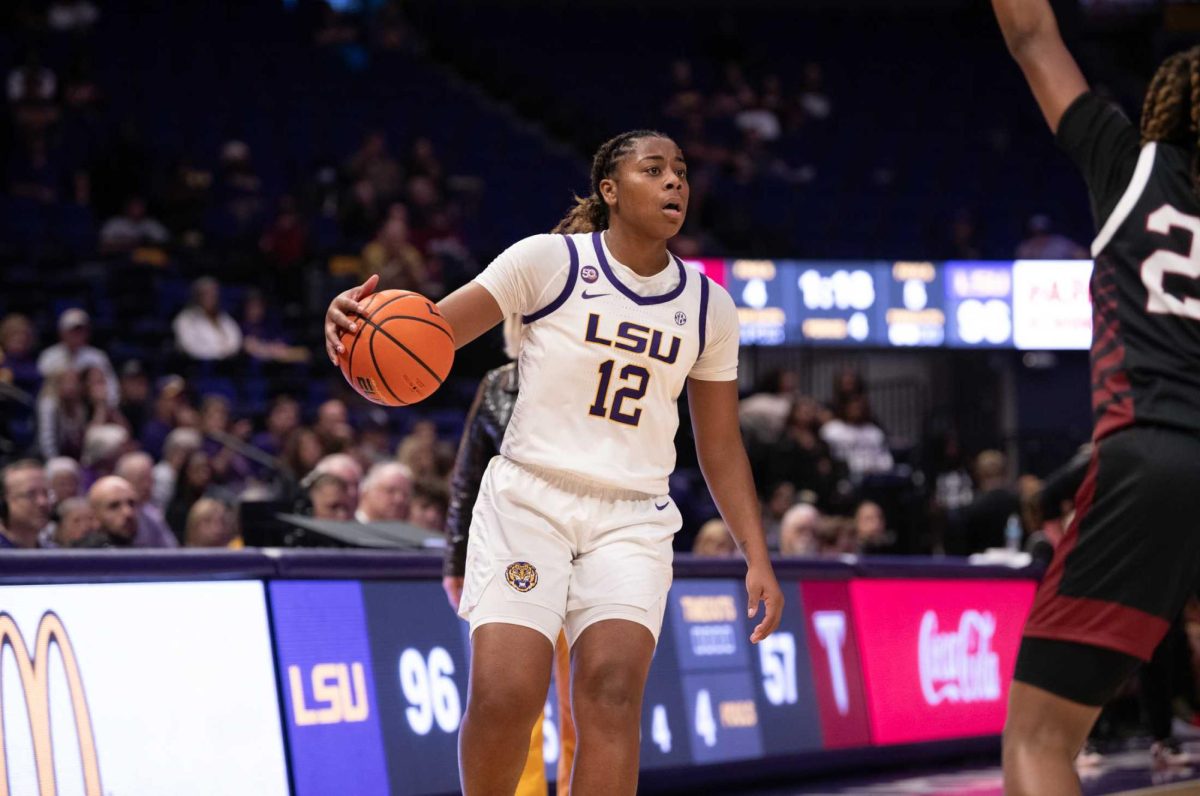Talking positives when a team just suffered its eighth straight loss is not a normality by any means, but they are worth noting for a few reasons.
While a tournament run isn’t likely, picking up a few wins towards the end of the season could provide the team with momentum heading into the next one and seeing head coach Matt McMahon make strong adjustments would be a good sign.
Texas Tech hasn’t been an amazing team, but it also bore the brunt of an eight-game stretch where six of its opponents were and still are ranked, most of which are ranked inside the top 15. It did so with varying degrees of success, with close losses to No. 9 Kansas, No. 11 TCU and No. 10 Texas being overshadowed by bad ones to No. 12 Iowa State and unranked West Virginia.
It was missing two key players in guard Pop Isaacs and forward Fardaws Aimaq, but it was still going to be a challenge for the Tigers no matter what. And though they didn’t play amazingly, especially towards the end of the game, there were still improvements made that are worth discussing.
Fast Start
The biggest talking point regarding LSU men’s basketball has been its lack of scoring since starting SEC play. Between its 71-point showing against Kentucky, where it put up a solid 38 points in the first half, and its game versus Texas Tech, the team averaged less than 54 points per game.
One of the main reasons for that was the sluggish starts in the first half. That’s a problem that began popping up even before conference play, particularly in its Power 6 matchup against Wake Forest, where the Demon Deacons went up by 20 early due to a lack of urgency on both sides of the ball. And those sluggish starts have been a staple of this losing streak.
Until today, the Tigers had failed to score more than 30 points in the first half since that game against the Wildcats about a month ago. Before SEC play began, they were in the top 50 in first-half scoring. They’ve since dropped out of the Top 200, averaging just 32.2 points per first half after previously averaging 37.7.
But on Saturday, the Tigers entered the break with 33 points, which correlated with the resurgence of Adam Miller. After missing his first two three-pointers, he’d make four in a row, which played a large role in the team keeping up with Texas Tech’s offensive onslaught.
“I think I was less tense and more confident, and I just let it kind of come to me,” Miller said. “When I have a bad shooting game, it’s like ‘Okay, I got to get going for us to win, I’ve got to do this for us to win,’ when necessarily I just have to let the game come to me and everything will fall into place.”
That scoring success carried into the second half and even though they were down by eight points at the beginning of it, the Tigers quickly narrowed the gap. They’ve rarely had that opportunity in recent weeks.
Offensive Rebounding
Another point of improvement McMahon had at the top of his list was rebounding. The battle on the boards is a big reason why LSU lost to Kentucky in early January and it’s another category that the Tigers don’t crack the Top 200 in.
While Texas Tech eventually passed them in total rebounds, winning the battle 36-34, LSU controlled the boards on offense and that success carried over to the scoreboard. It attributed 17 offensive rebounds, which were converted into 20 second chance points, 30% of its total scoring output.
And on top of it creating second chances offensively, it also decreases fast break opportunities, a point brought up by Adam Miller.
“In a lot of these games, they’ve been out of reach. People just get our rebounds and run it down the court,” Miller said. “When we get offensive rebounds, it gives us a chance of getting easy layups or easy kick-out threes, and the chance to give everybody a taste of their medicine.”
KJ Williams, Derek Fountain, Justice Williams and Jalen Reed each contributed multiple offensive rebounds, with KJ Williams leading the way with four. Continued overall team success in this category could help the Tigers end their losing streak.
Free throw Shooting
While not having the same level of impact of LSU’s games as the first two, free throws are still an important aspect of the game and another one that the Tigers have struggled with this season. It entered the game shooting just under 70% as a team from the line, placing them in the bottom half of the category in both the SEC and nation.
While the team does have a few good free throw shooters, with KJ Williams, Cam Hayes, Miller and Fountain all shooting at or near 80% from the free throw line, the rest of the team doesn’t have amazing percentages. The Tigers have a clear lineup they would use whenever they’re expected to get fouled but they’re still losing a lot of points from the line in most games.
But on Saturday, they shot well from the stripe, converting on 15 of 19 free throw attempts, with most of that output coming in the second half where they’re most vital. In fact, after Adam Miller missed the team’s first free throw of the half, the team finished the game making 12 straight free throws.
This was a big reason why LSU was able to temporarily stay in the game amidst its late shooting stretch. After a KJ Williams three-pointer put the Tigers up by five with 9:03 left in the game, they failed to convert on a single field goal until there were 24 seconds left in the game.
But they did make eight free throws, which kept the damage at bay for longer than it should have. And after falling behind by nine with under four minutes to go, it went 4 of 4 on free throws in back-to-back possessions to put them in a position to come back again.
While there’s still a vast list of aspects LSU needs to improve on, such as shooting in general, defensive rebounding and three-point defense, the more they manage to eliminate, the better chance it’ll have at winning games.
LSU will get its next chance to show off improvements on the road at Missouri on Wednesday. Tipoff is set for 8 p.m. and will be streaming live on SEC Network.



